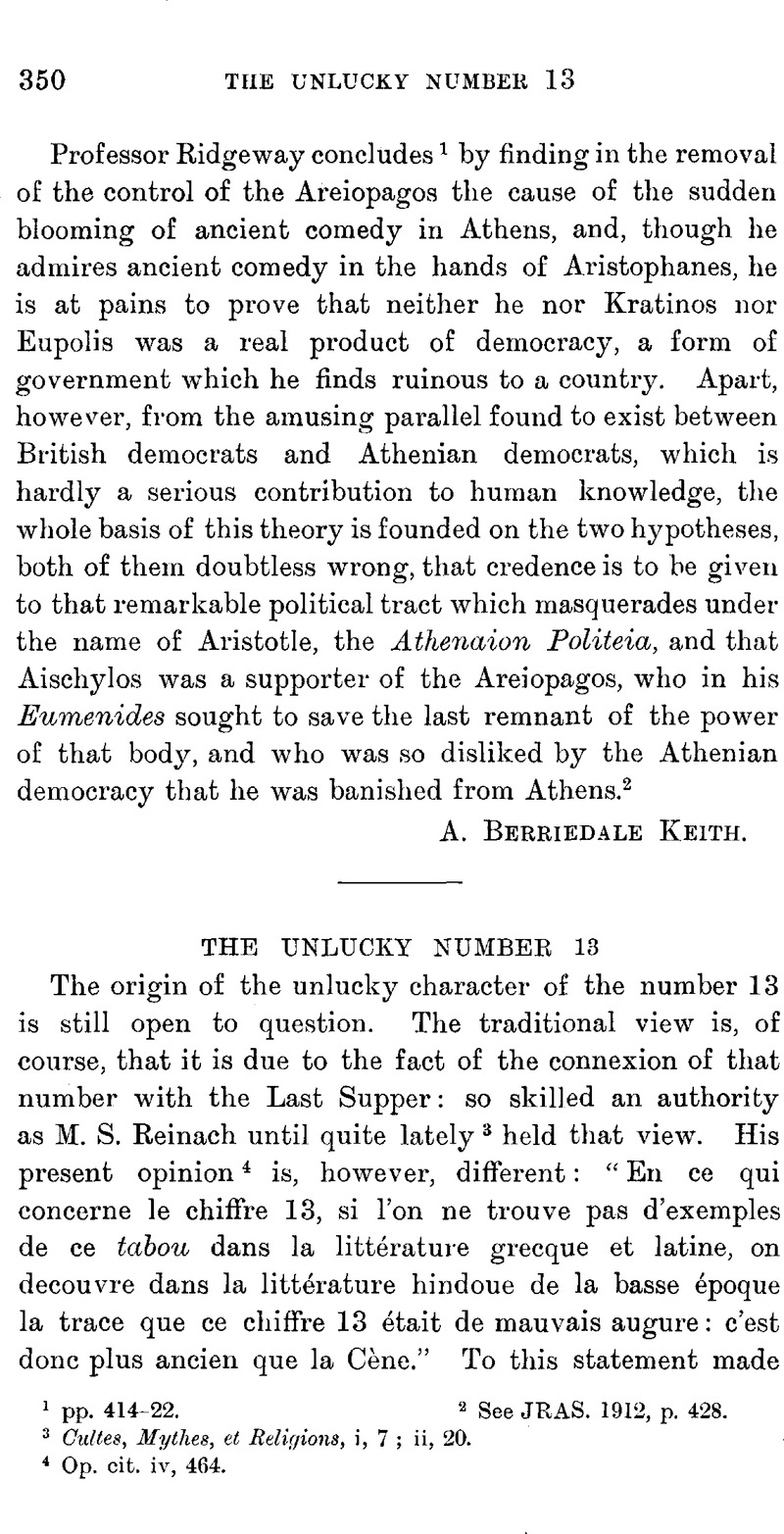No CrossRef data available.
Article contents
The Unlucky Number 13
Published online by Cambridge University Press: 15 March 2011
Abstract

- Type
- Miscellaneous Communications
- Information
- Copyright
- Copyright © The Royal Asiatic Society 1916
References
page 350 note 3 Cultes, Mythes, et Religions, i, 7; ii, 20.Google Scholar
page 350 note 4 Op. cit. iv, 464.
page 351 note 1 From the Lalita Vistara referring to the Buddha's birth.
page 351 note 2 Bopp, , Glossarium comparativum 3, p. 167Google Scholar, is interpreted in this sense by Böklen.
page 351 note 3 xvi, 92 seq.
page 352 note 1 Philostratos, Ep. 39.
page 352 note 2 Siculus, Diodorus, iv, 39.Google Scholar
page 352 note 3 pp. 19–26.
page 353 note 1 Böklen, , p. 23.Google Scholar
page 353 note 2 Oriental Studies, pp. 150–4.Google Scholar
page 354 note 1 Golther, , German. Myth. p. 200.Google Scholar
page 354 note 2 Die Indogermanen, pp. 532 seqq.Google Scholar
page 354 note 3 JRAS. 1915, pp. 131–3.Google Scholar
page 355 note 1 Moulton (Early Zoroastrianism, p. 242Google Scholar) is in error in saying that Hirt has proved the variant system to be duodecimal, not sexagesimal; Hirt expressly admits, in his notes, that the system is rather sexagesimal, as shown by the Latin use of sexaginta and sescenti as indefinite numbers (op. cit. p. 747).
page 355 note 2 SirFrazer, J., Taboo and the Perils of the Soul, p. 5Google Scholar; Spirits of the Corn and of the Wild, ii, 82 seqq.Google Scholar
page 355 note 3 Op. cit. p. 2, comparing Mark xiv, 17 with xiv, 13.


